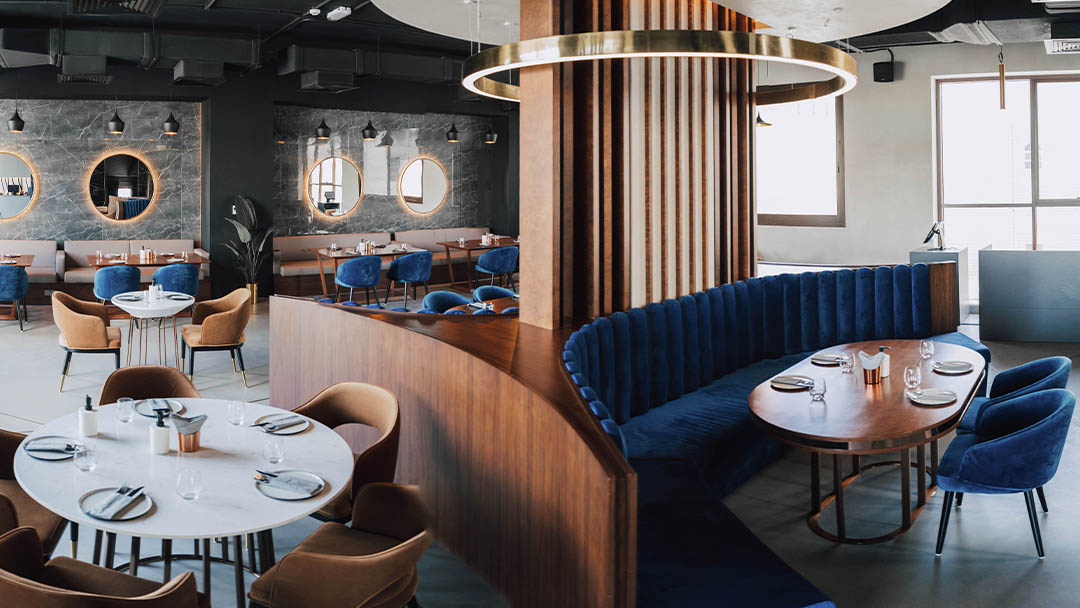
Dubai’s economy is thriving again and restauranteurs in the region are showing no signs of slowing down.
The Department of Economy and Tourism’s Business Registration and Licensing reported that it issued 24,662 new business licenses in Q1 2022, a growth of 58% compared to Q1 2021, and restaurant openings have proven to be one of the most popular categories across the past few years.
There’s positive energy in the air and a true entrepreneurial spirit everywhere you look. Overall economic stability looks increasingly promising, and with that, we are witnessing increased demand for people wanting to open restaurants in the city. For those wishing to start a new restaurant business, there could possibly be no better time but that doesn’t mean that every new start-up in the industry is destined to succeed.
Opening a new restaurant requires some smart decision-making as well as consideration into avoiding some common mistakes that budding restaurateurs make.
Opening a restaurant in Dubai? Consider these dos and don’ts.
DO: understand your capital needs
Put a lot of time and thought into your start-up costs and factor in from the outset, the cost of construction and set-up overruns, order changes, and the inevitable delays in getting approvals and permissions from various governing authorities. Your feasibility study should take into account such factors and we advise a contingency of up to 15% in the rapidly evolving new market.
Don’t: expect to start making money from day one
Even if sales are strong from day one, you will always be operating initially in deficit, for a few months at the very minimum. This should be factored into your start-up budgeting so you don’t suddenly find yourself out of money and upstream without a paddle. Dubai sees new projects launch every quarter, which is a great thing for the economy in the long run. Short-term effects are a shift of interest from the target market to newer openings and attractions. Keep contingency funds for at least 3 months of post-opening operations.
DO: identify a clear vision and a strong purpose
All those involved in your venture need to be bound together by a common goal and establishing this requires strong leadership skills. A new restaurant demands hard work, long hours, and often hectic conditions so you’ll need a strong culture of collaboration, communication, and teamwork to get through it.
DON’T: dismiss the importance of processes and procedures
Every single day, a restaurant sees a team of individuals carry out hundreds and thousands of tasks, all of which require a seamless transition, precision organization, and consistent execution. Restaurant franchises have the benefit of starting with every procedure and process already in writing but independent restaurants often just try and make it up as they go. Having a well-documented set of procedures, recipes, brand guidelines and detailed training manuals are the only way to achieve consistency in service and operating standards.
DO: remember that you own the joint
This means that you should be managing the business and focusing on such activities as the monitoring of cash flow, the analyzing and forecasting of P&L sheets, the planning of future marketing activities and other strategic functions. Even during the start-up phase, try to avoid getting bogged down with menial tasks and day-to-day staff training and monitoring. Your brand management should enhance your efforts by focusing on brand positioning and communication in the first crucial year.
DON’T: try to appeal to everyone
You can’t possibly appeal to everyone and if you try, you’ll end up diluting your brand concept, confusing your customers, and dealing with an overly-complicated menu and kitchen. The key to success is to identify a niche and then fulfill it, with laser-beam focus.
DO: iron out start-up issues before having a grand opening day
Most restaurants have at least a few weeks of soft opening to iron out initial issues and ease into workflows before hosting a grand opening. Why put extra pressure on yourself? First impressions count and, in a city, where competition is rife, you can’t afford to start out with a bad launch. Expect the first two weeks to be a trial and error experience and use the learnings to build a strong team and product.
DON’T: focus only on what you like
Because you are not the customer! Find out what your potential customer market like, want, and are willing to pay before launching. Go to competitor restaurants, set up focus groups, and chat with the local community to figure out what people want.
DO: secure a location that suits your concept
You’d expect this advice to be the other way around. Ideally, you should seek a great location and then determine what the local market wants before building your concept around that. However, in an emerging growing market like Dubai, most locations are sourced off-plan to avoid losing out on prime space. In this case, you need to ensure that no matter what your heart desired, your concept now needs to match the new location’s target audience, and buying habits and above all, F&B facilities and seating capacity should support your feasibility plans.
DON’T: settle on a mediocre location to reduce your rent
Location, location, location! The population of Dubai wants and expects total convenience so if they need to go out of their way to find you, they probably won’t bother. High visibility and convenient access are more critical today than ever before so skimping on rent by compromising on location is a totally false economy.
For further insight into opening a restaurant in Dubai, call Restaurant Secrets Inc. on +971 56 511 2536, [email protected], visit restaurantsecretsinc.com or follow @restaurantsecretsinc on social media.